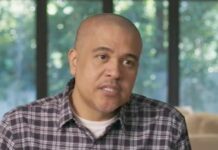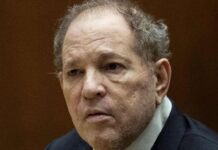
(Sept. 12, 2017 – Source: Jemal Countess/Getty Images North America)
*Oscar winner Halle Berry bonds with Daniel Craig amid the L.A. riots in director Deniz Gamze Ergüven’s “Kings” — a title that pays homage to Rodney King, Dr. Martin Luther King, Jr., and other agents of change.
Set against a backdrop of rising racial tensions during the verdict of the Rodney King trial in 1992, “Kings” tells a dramatic story of Millie (Berry), a tough and protective single foster-mother of eight who must ally herself with Obie (Craig), her neighbor and a local loose cannon, when racial tensions start to run dangerously high.
As the civil unrest in Los Angeles grows following the acquittal of four of the officers accused of beating King, Millie and Obie must navigate the chaos that surrounds them in order to ensure her children’s safety.
Actor Lamar Johnson plays Jesse Cooper, the eldest son of Millie, and he tells EUR/Electronic Urban Report that the film, sadly, proves to be more relevant than ever in today’s social and political climate.
Check out our Q&A with the talented young star below.
OTHER NEWS YOU MIGHT HAVE MISSED: Cops Who Shot Stephon Clark Back on Duty; Brother Stevante Clark Arrested for Criminal Threats

(Source: Jemal Countess/Getty Images North America)
How much research is involved to prepare for such an emotionally challenging role like this?
Lamar: I was born in 1994, so I knew there was a lot of research that had to be done in order for me to portray this character as truthful and as honest as possible. But I’m really happy that I was fortunate enough to have an amazing director that made sure we were well versed and very researched on the topic and the time in Los Angeles. We had a very extensive rehearsal process for us to get into that mental space. The creative process was really collaborative with me, the director and my cast members. The experience for me was very positive.
Did you pull from your own experiences as a young black man to help occupy Jesse’s headspace?
Lamar: Definitely. I have to pull from certain experiences that I personally have to go through in order for me to try to make it as truthful and honest as possible. I definitely pulled from my own personal experience, especially growing up as a young black man. It was definitely something I had to pull from but also I was lucky enough to have a director who helped me access certain things that I needed to access. I’m very proud of what we did.
How much of yourself did you see in Jesse, especially in terms of his basic instinct to survive as a black man in racially-charged Los Angeles?
Lamar: There’s actually quite a bit of similarity between me and Jesse. Even just his morale and who he is as a human being. I feel like Jesse is the type of person — even though he’s in a circumstance he doesn’t want to fall victim to — he has goals and aspirations and he’s always the person to diffuse the flame and always trying to level everything out. So those are very big similarities with Jesse that I can pull from my own personal life experience and put into the character.
How would you describe Jesse’s views towards race?
Lamar: He’s very aware of his race and background but I think Jesse is the type of person to always take a positive out of everything. He lives in South Central L.A. during a time that’s not really the best time for him, especially being black but he’s going to make the best out of his situation. He’s going to go to school and get his education. He’s going to take school seriously so he can take himself out of that circumstance. He’s caught in the middle of the riots and I’m actually really happy about the perspective of the film The riot is actually the backdrop of the film so you really get to see this foster family and how they’re affected by the riots.

Speaking of which, how did the city itself help to shape and inform your character?
Lamar: His experiences with things have emboldened him to make this exterior hard shell. It’s very hard to penetrate and you can kind of see that in the film with certain things that happen to him and with the characters that are around him. He holds a very big responsibility in terms of having to take care of the other foster children. There’s this interesting dynamic with Millie and the children because he feels he’s the husband. He has to look out for the children and also look out for himself. There’s a lot that he has to deal with every day and, once again, he has this hard shell and he tries not to let anything penetrate him. He holds his ground and he’s very confident in the way that he moves and I think that’s how things have resulted in him being very strong.
Talk a bit about your experience filming the riot scenes? What was going through your head?
Lamar: I was very in awe of everything that was happening around me; people getting arrested, police chasing after you, and I used that as fuel to get me in the right headspace that I needed for the character and also for the film.
Many would debate that not much as changed since King’s beating in 92, so what does the film say about today’s society? Did you, Halle and Daniel ever talk about how current events relate to the events played out in the movie?
Lamar: Yeah, we really talked about how very little we’ve come since 1992. We filmed this at the end of 2016 and there was still very similar events that were happening that were reflected in exactly what we were doing. I don’t know if you want to call 1992 a period piece but it’s kind of a period piece. We’re still dealing with the same issues on how little and far we’ve come. But I’m really happy that our generation and the community is coming together now and using their voice and platforms to spread the message. I’m happy these films are now coming out to educate the people that may not know certain perspectives on these situations.

(Sept. 12, 2017 – Source: Jemal Countess/Getty Images North America)
How do you think the viewing experience will differ for non-black people?
Lamar: Everything is really subjective, right? You watch something and you have your own perspective on what is being told and what is being put on screen, so of course, there will be different viewpoints. The black people will have a different perspective on the film than white people would or Asian or whatever background you are. But I think what will be taken from the film is what happened and how these people are affected ‘cause you actually get to see it. Regardless, I think it will start a conversation and I think that’s the best thing we could do.
Why is “Kings” vital for audiences today?
Lamar: I think it’s kinda what we already touched on, seeing how very little we’ve come. To see that this is what happened in 1992, but you’re reading an article yesterday that is very similar to what happened in 1992. So I think Kings is just very important for people to see that we have to stick together in order for things to change.
And the overall message you’re hoping audiences take away?
Lamar: The underlying message of everything is love. Love always wins. Everything that happens in the film is very heavy but everything is motivated by love.
“Kings” opens in theaters nationwide April 27.
Watch:
We Publish News 24/7. Don’t Miss A Story. Click HERE to SUBSCRIBE to Our Newsletter Now!





